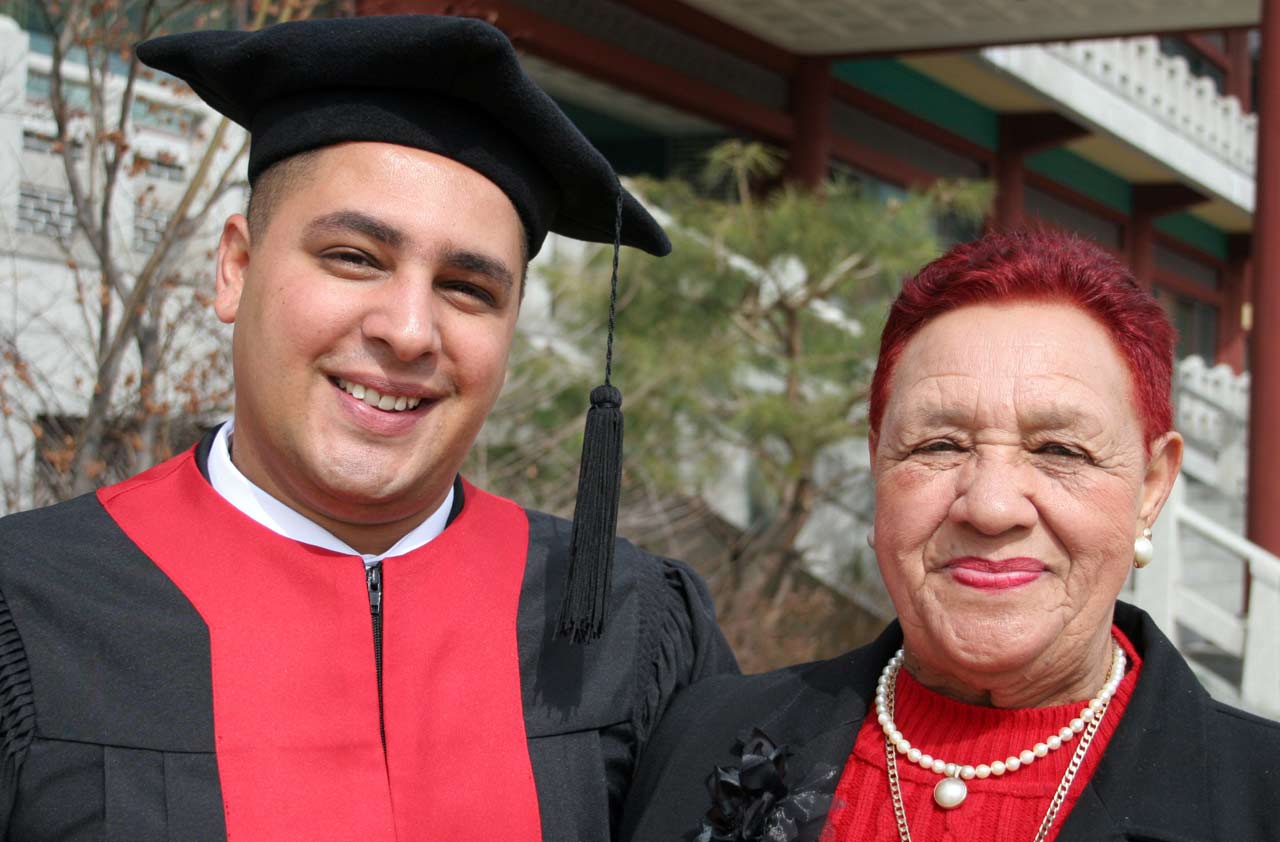How Roth IRAs Affect Financial-Aid Eligibility
The money isn't considered an asset, even if it's in your child's name.

Profit and prosper with the best of Kiplinger's advice on investing, taxes, retirement, personal finance and much more. Delivered daily. Enter your email in the box and click Sign Me Up.
You are now subscribed
Your newsletter sign-up was successful
Want to add more newsletters?

Delivered daily
Kiplinger Today
Profit and prosper with the best of Kiplinger's advice on investing, taxes, retirement, personal finance and much more delivered daily. Smart money moves start here.

Sent five days a week
Kiplinger A Step Ahead
Get practical help to make better financial decisions in your everyday life, from spending to savings on top deals.

Delivered daily
Kiplinger Closing Bell
Get today's biggest financial and investing headlines delivered to your inbox every day the U.S. stock market is open.

Sent twice a week
Kiplinger Adviser Intel
Financial pros across the country share best practices and fresh tactics to preserve and grow your wealth.

Delivered weekly
Kiplinger Tax Tips
Trim your federal and state tax bills with practical tax-planning and tax-cutting strategies.

Sent twice a week
Kiplinger Retirement Tips
Your twice-a-week guide to planning and enjoying a financially secure and richly rewarding retirement

Sent bimonthly.
Kiplinger Adviser Angle
Insights for advisers, wealth managers and other financial professionals.

Sent twice a week
Kiplinger Investing Weekly
Your twice-a-week roundup of promising stocks, funds, companies and industries you should consider, ones you should avoid, and why.

Sent weekly for six weeks
Kiplinger Invest for Retirement
Your step-by-step six-part series on how to invest for retirement, from devising a successful strategy to exactly which investments to choose.
We have two daughters who have both earned some income from part-time jobs and are eligible to make Roth IRA contributions. We’d like to help them start building their retirement savings by matching what they contribute. Will owning the Roth in their names affect their eligibility for financial aid?
Money in your daughters’ Roth IRAs won’t affect their aid eligibility as long as they don’t make any withdrawals. Retirement account balances -- such as in Roth and traditional IRAs, 401(k)s and 403(b)s -- aren’t reported as assets on the Free Application for Federal Student Aid (FAFSA), regardless of whether they’re owned by the student or the parent, says Mark Kantrowitz of Finaid.org. And the CSS Profile, an aid form that many private colleges use, does not factor retirement assets into need analysis, either.
But distributions from retirement accounts are reported as income on both applications and could affect your daughters’ financial aid in the year after they take the distribution. The key, says Deborah Fox, founder of Fox College Funding in San Diego, is to not withdraw the money until you are no longer applying for financial aid.
From just $107.88 $24.99 for Kiplinger Personal Finance
Become a smarter, better informed investor. Subscribe from just $107.88 $24.99, plus get up to 4 Special Issues

Sign up for Kiplinger’s Free Newsletters
Profit and prosper with the best of expert advice on investing, taxes, retirement, personal finance and more - straight to your e-mail.
Profit and prosper with the best of expert advice - straight to your e-mail.
For more information about Roths for kids, see Roth IRAs for Kids. And for more information about financial aid, see Cracking the Financial Aid Code.
Profit and prosper with the best of Kiplinger's advice on investing, taxes, retirement, personal finance and much more. Delivered daily. Enter your email in the box and click Sign Me Up.

As the "Ask Kim" columnist for Kiplinger's Personal Finance, Lankford receives hundreds of personal finance questions from readers every month. She is the author of Rescue Your Financial Life (McGraw-Hill, 2003), The Insurance Maze: How You Can Save Money on Insurance -- and Still Get the Coverage You Need (Kaplan, 2006), Kiplinger's Ask Kim for Money Smart Solutions (Kaplan, 2007) and The Kiplinger/BBB Personal Finance Guide for Military Families. She is frequently featured as a financial expert on television and radio, including NBC's Today Show, CNN, CNBC and National Public Radio.
-
 Dow Leads in Mixed Session on Amgen Earnings: Stock Market Today
Dow Leads in Mixed Session on Amgen Earnings: Stock Market TodayThe rest of Wall Street struggled as Advanced Micro Devices earnings caused a chip-stock sell-off.
-
 How to Watch the 2026 Winter Olympics Without Overpaying
How to Watch the 2026 Winter Olympics Without OverpayingHere’s how to stream the 2026 Winter Olympics live, including low-cost viewing options, Peacock access and ways to catch your favorite athletes and events from anywhere.
-
 Here’s How to Stream the Super Bowl for Less
Here’s How to Stream the Super Bowl for LessWe'll show you the least expensive ways to stream football's biggest event.
-
 I Want to Help Pay for My Grandkids' College. Should I Make a Lump-Sum 529 Plan Contribution or Spread Funds out Through the Years?
I Want to Help Pay for My Grandkids' College. Should I Make a Lump-Sum 529 Plan Contribution or Spread Funds out Through the Years?We asked a college savings professional and a financial planning expert for their advice.
-
 Ask the Editor, September 12: Tax Questions on 529 Plan Rollovers to a Roth IRA
Ask the Editor, September 12: Tax Questions on 529 Plan Rollovers to a Roth IRAAsk the Editor In this week's Ask the Editor Q&A, we answer four questions from readers on transferring 529 plan money to a Roth IRA.
-
 8 Times You Should Contact Your Financial Adviser
8 Times You Should Contact Your Financial AdviserWhether you experience a job change or begin caring for aging parents, your financial adviser can help manage the impact on your financial plan.
-
 Do You Save for College or for Retirement? What Parents Need to Know
Do You Save for College or for Retirement? What Parents Need to KnowPaying for College Here's a message that all parents need to take to heart: It's OK to put yourself ahead of your kids. In fact, putting your retirement needs ahead of their college costs is not only necessary but wise ... and, ultimately, thoughtful, too.
-
 How to Help Grandchildren Pay for College
How to Help Grandchildren Pay for CollegePaying for College Follow these tax-saving strategies while gifting money to help fund their education.
-
 Getting Out of an RMD Penalty
Getting Out of an RMD Penaltyretirement When your brokerage firm miscalculates your required minimum distributions, you have recourse.
-
 Borrowers Get More Time to Repay 401(k) Loans
Borrowers Get More Time to Repay 401(k) Loansretirement If you leave your job while you have an outstanding 401(k) loan, Uncle Sam now gives you extra time to repay it -- thanks to the new tax law.
-
 It’s Not Too Late to Boost Retirement Savings for 2018
It’s Not Too Late to Boost Retirement Savings for 2018retirement Some retirement accounts will accept contributions for 2018 up until the April tax deadline.